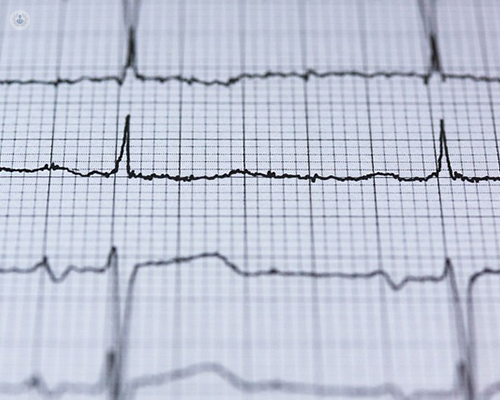Palpitations: How do they relate to heart health?
Autore:In this informative guide, we hear expert insight on palpitations from leading consultant cardiologist Dr Smriti Saraf. The leading expert reveals which are the most common causes of palpitations, associated triggers and when to seek medical attention.

What are palpitations, and how are they related to heart health?
Palpitations are sensations of rapid, fluttering, or pounding heartbeats. While they can be a normal response to certain situations (like anxiety or exertion), they can also indicate underlying heart issues. Palpitations may be linked to irregular heart rhythms (arrhythmias) or other cardiovascular conditions, making it essential to evaluate their connection to overall heart health.
What are the common causes of palpitations, and how can I differentiate between benign and more serious underlying issues?
Palpitations can result from various factors, including stress, caffeine intake, or hormonal changes. However, they can also be indicative of more serious conditions such as arrhythmias or heart valve disorders. Differentiating between benign and serious causes often involves considering accompanying symptoms, frequency, and the context in which palpitations occur. A comprehensive medical evaluation is crucial for accurate differentiation.
Are there specific triggers or lifestyle factors that can contribute to palpitations, and how can I manage or avoid them?
Common triggers for palpitations include stress, anxiety, caffeine, nicotine, and certain medications. Lifestyle modifications such as stress management techniques, reducing caffeine intake, and maintaining a healthy sleep schedule can help manage and prevent palpitations. Identifying and addressing specific triggers are key components of effective management.
When should I be concerned about palpitations, and what symptoms or signs indicate a need for immediate medical attention?
While occasional palpitations are often harmless, persistent, severe, or associated with symptoms like chest pain, shortness of breath, or fainting warrant immediate medical attention. These could be signs of a more serious underlying heart condition requiring prompt evaluation and intervention.
What diagnostic tests might be performed to identify the cause of my palpitations, and what are the available treatment options for managing this symptom?
Diagnostic tests may include an electrocardiogram (ECG or EKG), Holter monitor, or event monitor to record heart activity over time. Blood tests, echocardiogram, and stress tests may also be used.
Treatment options depend on the underlying cause and may include lifestyle modifications, medication, or procedures such as ablation to correct abnormal heart rhythms. A cardiologist will tailor the approach based on the individual's specific diagnosis and overall health.
If you are concerned about palpitations or your heart health, you can schedule a consultation with Dr Saraf by visiting her Top Doctors profile.


